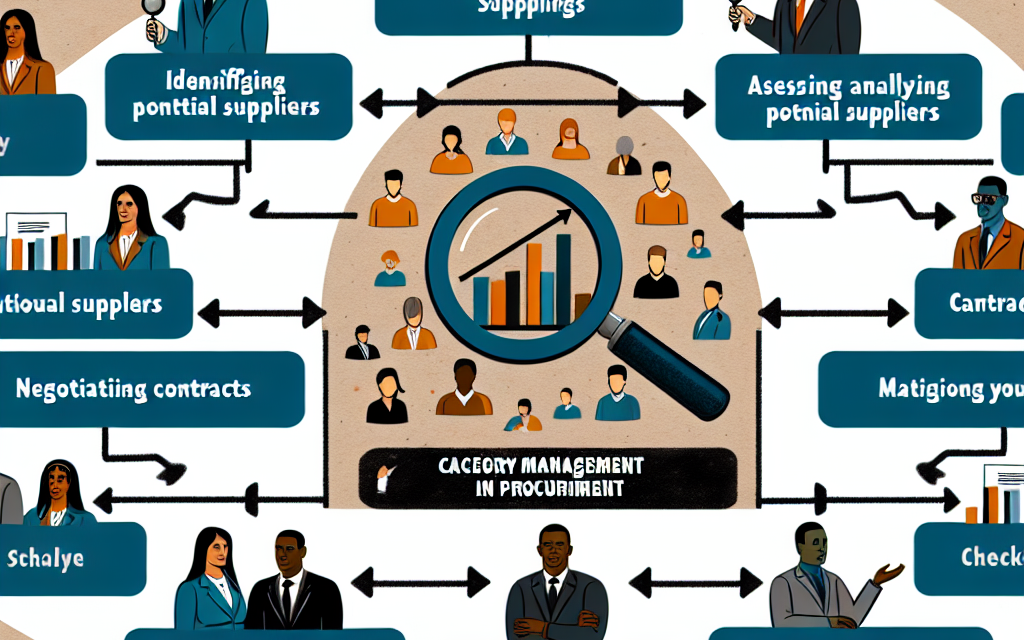Ultimate Guide to Category Management in Procurement
Managing categories effectively in procurement is essential for any organization seeking to optimize its supply chain and drive significant savings. Understanding the nuances of category management equips procurement professionals with the tools they need to negotiate better with suppliers while simultaneously ensuring quality and innovation. Let’s delve into the world of category management, its importance, and some key training opportunities.
What is Category Management?
At its core, category management refers to a strategic approach that involves organizing procurement activities based on distinct categories of products or services. This methodology allows organizations to streamline processes and make informed purchasing decisions that lead to substantial cost reductions and increased value. By learning how to categorize effectively, procurement professionals ensure that they meet business needs while fostering strong supplier relationships.
The Importance of Category Management
Implementing a comprehensive category management strategy has numerous benefits, including:
- Cost Efficiency: By analyzing and grouping similar products, organizations can negotiate bulk pricing and better terms with suppliers.
- Improved Supplier Relationships: A well-structured approach encourages collaboration and strategic alignments with key suppliers.
- Enhanced Product Quality: Understanding product categories allows for better evaluation and selection of suppliers who meet quality standards.
- Innovation and Sustainability: Category management encourages exploring new products and suppliers committed to sustainable practices.
Training for Mastery in Category Management
To excel in category management, procurement professionals can benefit significantly from targeted training opportunities. A training course focused on this area not only enriches their knowledge but also equips them with practical skills to implement effective strategies. For instance, a training resource like Category Management in Procurement Training Course offers insights and guidelines for streamlining procurement processes and maximizing value.
Complementary Skills for Procurement Professionals
In addition to category management, procurement professionals should consider enhancing their competencies in related areas. Strengthening skills in financial management can greatly augment procurement practices. For instance, check out Mastering Advanced Financial Management for Managers for valuable insights on aligning financial strategies with procurement goals.
Furthermore, developing strategic leadership abilities is essential. Explore Strategic Leadership for Effective Managers to foster better decision-making and improve organizational performance.
Moreover, focusing on performance measurements and continuous improvement ensures that the procurement function remains agile and responsive. Discover more through Performance Measurements and Continuous Improvement Simplified.
Boosting Personal Effectiveness
Personal skills play a critical role in the success of procurement professionals. Building positive skills can significantly enhance personal effectiveness. Consider reading Mastering Personal Effectiveness with Positive Skills and Boost Your Personal Effectiveness with Positive Skills for techniques that can lead to improved collaboration and negotiation outcomes.
FAQs About Category Management
1. Who should participate in training on Category Management?
Procurement professionals, sourcing managers, and anyone involved in purchasing decisions will find value in training on category management. It’s beneficial for both seasoned professionals and those new to the field.
2. How does category management impact supplier relationships?
A well-executed category management strategy fosters transparency and open communication with suppliers, leading to stronger partnerships. It allows both parties to align goals and drive mutual growth.
3. What are the measurable benefits of implementing category management?
Organizations can expect measurable improvements in cost savings, supplier performance, product quality, and overall procurement efficiency.
Conclusion
In conclusion, mastering category management is pivotal for procurement professionals looking to maximize efficiencies and drive substantial value for their organizations. By participating in targeted training and honing complementary skills, procurement staff can transform their approach to sourcing and negotiation. Embrace the world of category management and unlock its potential to foster innovation and enhance productivity.





